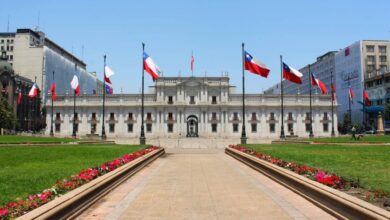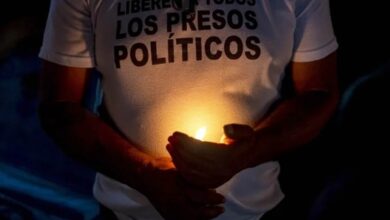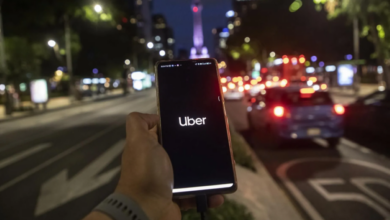Colombia: the National Strike continues and the pans will not stop ringing
'Why are they killing us? We are the hope of Latin America', the young people shout after the death of student Dilan Cruz in the framework of the National Strike.

Marches of different sectors in Bogotá, Colombia. / Photo: LatinAmerican Post
LatinAmerican Post | Juliana Suárez
Listen to this article
Leer en español: Colombia: el Paro Nacional continua y las cacerolas no pararán de sonar
The death of the young student Dilan Cruz has become a symbol of the violence that Colombia is experiencing, so civil society has called for more protests in the coming days.
Dilan Cruz died of a coup allegedly struck by a stunner thrown directly at him by a member of the Mobile Riot Squadron (ESMAD). The death, which was confirmed by the San Ignacio University Hospital on the night of November 25, caused outrage in hundreds of thousands of inhabitants who, in addition to all the orders for which the strike was called in the first place, ask for the ESMAD to disappear and the abuse of police force to be punished.
Presidente @IvanDuque, además de condolencias, hace falta justicia.@FiscaliaCol debe adelantar una investigación confiable y exhaustiva.@mindefensa debe anunciar medidas para que esto no vuelva a ocurrir. https://t.co/QeuChrdB6W
— José Miguel Vivanco (@JMVivancoHRW) November 26, 2019
Following the protests that began on November 21, President Iván Duque has called a 'Great National Conversation', in which he has decided to meet every day with different sectors that can contribute to the changes requested by the Colombian people. This National conversation has been criticized by many because it does not directly respond to what the Strike's National Committee and the unions and organizations are asking, also criticizing that Duque decided to bring together the elected mayors first rather than with the civilian population.
After the first meeting in this framework, the president said that the transversal axes that would be covered in these conversations would be: employment, education, fight against corruption, peace with legality, environment and institutional strengthening.
On Tuesday, November 26, it was the turn for the National conversation with the Strike's National Committee. That same day, Colombia had woken up with the news of Cruz's death and the spirits were full of tension.
Also read: How many victims have left the Latin American protests?
Among the 13 requests made by the committee as key points to discuss the problems that afflict Colombians, the 'pack' of Duque, education, health and the elimination of ESMAD were included, among others. At the table, they also arrived after confirmation of the issuance of a decree approving a Financial Holding, which would privatize some public companies. They also arrived at the table after statements by the president saying that the restructuring of ESMAD was not in negotiation.
This hostile terrain contributed to organizations such as Fecode (Colombian Federation of Education Workers) and CUT (Central Unitary Workers) rejecting the conversation with the government. Among its complaints is the lack of guarantees and responses from the government regarding its specific requests and the dissolution of the dialogue through the so-called 'Great National Conversation'.
The main criticism of the opposition towards Duque in the framework of the strike is that he has not been forceful nor has he prepared to listen carefully to the requests, which are urgent and must bring prompt solutions. On the contrary, the 'Great National Conversation' that has been convened will be a series of talks that will go until March 15, a fact that would not attend to this urgency.
As a result, the organizing committee and the unions called for the conversation on Tuesday 26, said that on Wednesday 27 there would be another National Strike, which means that the sectors included will not work and will go out to the streets to continue protesting in a march that will be even more massive than the ones that have been seen last week with the 'cacerolazos'. The strike will be mainly in rejection of the government, but also as a tribute to Dilan.
El Comité Nacional de Paro ha decidido reforzar y elevar la protesta y la movilización. Convocamos a Paro Nacional este 27 de noviembre en una nueva Jornada Nacional
Contra el Paquetazo de Duque y como homenaje a Dylan Cruz, ¡El Paro sigue! pic.twitter.com/cIZRjOpe5i
— CUT Colombia (@cutcolombia) November 26, 2019
The death of the student Dilan Cruz unleashed even more the discontent of the population, which has denounced dozens of attacks by the public force, both blows to protesters, dispersions with tear gas indiscriminately, to attacks on private property with stones by the police officers. For that reason and for the original reasons of the strike, young people have not stopped marching. On Tuesday 26, thousands of citizens gathered in Bogotá in the place where the young man was attacked, as well as in the hospital where he was treated and in other parts of the city to watch over him and shout in his name.
The recent day of demonstrations has included a call to nonviolence and casseroles, music and songs have been against violence, wherever it comes from. In the days of the strike, other civilians have been injured as well as members of the Public Force. So the call is to reject violence and not focus on taking sides, "All lives count", "We are all Dilan" and "Dilan did not die, Dilan was killed ', have been some of the phrases that have marked Recent events in the country.
Another case that shocked the country was the suicide of a young soldier. Brandon Cely, 21, recorded a video in which he supported the National Strike but he felt sorry for not being able to do so because he belonged to the Armed Forces. “We are not from right or left. We are the people. We, the Army, settled for the people because our family belongs to the people,” said the young man. He appealed to the reasons, saying that he had no job opportunities, so he ended up silencing abuses by the Armed Forces. He said that in the Army they took away his voice and vote: “I have no right to opinion… I have no right to talk about the irregularities that the army has”.
These deaths have been a call to the Colombian people to react on the violence, thousands of victims have been taken, both civil and official. Meanwhile, the 'cacerolazos' and songs continue throughout the country, even in the Congress' building.
Fuerte cacerolazo en el Congreso, en el edificio de las oficinas de los congresistas, por la muerte de Dilan Cruz y en respaldo al paro pic.twitter.com/Pxks9ACleZ
— Jorge Robledo (@JERobledo) November 26, 2019





